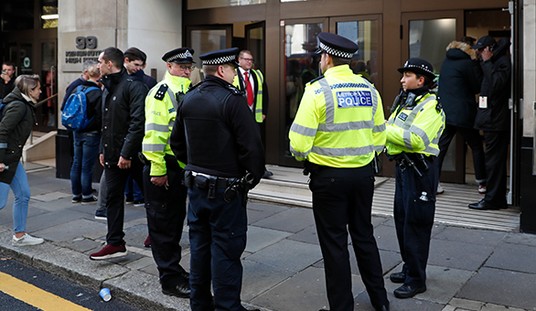Some of what follows was sparked by a Saturday night Twitter conversation with HotAir’s Allahpundit and GOP fundraiser/consultant Nathan Wurtzel. I mention this to credit them with any insight, but they should not get any blame for my further speculation.
Today’s political headline appeears to be fmr. Minnesota Gov. Tim Pawlenty ending his campaign after a disappointing finish in the Iowa straw poll on Saturday. It is a smart end to what I thought became a fundamentally misguided campaign. With fmr. Massachusetts Gov. Mitt Romney the putative national frontrunner, the current basic dynamic of the campaign is Romney vs. Not Romney. Pawlenty’s apparent strategy was to become Not Romney by campaigning against Iowa caucus frontrunner Rep. Michelle Bachmann, instead of highlighting his own advantages over Romney. That strategy failed. Fortunately for the following speculation, Pawlenty gained so little traction in the race that his departure is largely a non-factor.
After the straw poll, I was responding on Twitter to some hypothetical questions Allahpundit posed about the Iowa caucuses, when Nathan noted that South Carolina is a much more important state for the primary campaign. I think he’s right on a number of levels, although I will go a bit further down the road to Florida.
Given how dependent caucuses are on ground organization, Bachmann is the likely winner in Iowa, even if Sarah Palin gets in; the interesting story will be who ends up between her and Romney (who is not making a serious play there) in the final tally. Similarly, New Hampshire is likely a lock for Romney. There hsn’t been a poll there in over a month, but the most recent one (from Dem firm PPP) puts Bachmann six points behind, even if Palin stays out. That seems consistent with New Hampshire’s general reputation and Romney’s near-favorite son status there.
That brings us to South Carolina, a state both bigger than Iowa or New Hampshire and more in line overall with the GOP’s electoral coalition, both ideologically and geographically. Texas Gov. Rick Perry’s belated entry into the race likely dictated that he would announce there, as previous nominees McCain and Bush both won that state. It is a bit less conservative than it was in the late 80s and early 90s, so one question is whether Romney might eke out a narrow victory over a closely bunched field of more conservative candidates — Bachmann, Perry and perhaps Palin. A win in South Carolina could go a long way toward sewing up the race for Romney.
However, if Perry does not embarrass himself in Iowa and New Hampshire, he has a good shot at launching a successful campaign and eclipsing Bachmann in South Carolina. Although Perry lagged Bachmann significantly in the most recent poll, that poll is close to a month old (on the other hand, it does not break out numbers for what happens if Palin stays out). Moreover, as Ramesh Ponnuru notes, the GOP has a history of nominating “the next person in line,” but also a history of nominating candidates with executive experience from the South and the West. Implicit is that the GOP does not have a history of nominating candidates from the House of Representatives.
Should Perry or Bachmann win in South Carolina, the next big tilt is Florida, where the 2008 GOP primaries were largely settled. The most recent poll (from Quinnipiac) still has Romney comfortably ahead there, but also shows Bachmann is more hurt by Perry’s entry than she would be by Palin getting in. This would again tend to point toward a Romney-Perry race developing, but only if Romney cannot sew things up by the end of January.
A corrollary — and the lesson of Pawlenty’s failure — is that the Not Romney field will have to get more aggressive soon about Romney’s weaknesses as a candidate, e.g., RomneyCare, his flip-flopping, the downside of his business dealings, if Romney is to be stopped. The race is currently Mitt’s to lose, but most of the reasons whay he lost to the near-dead McCain in 2008 may return to drag him down as more people start paying attention. The first two of the aforementioned weaknesses in particular would rob the GOP of opportunities to draw contrasts with Pres. Obama in a general election (which could become important if the economy ever emerges from its current stagnation). On the other hand, the GOP needs a candidate who is competitive with Obama in places like Florida — as Romney currently is. At the moment, a look at the general election campaign suggests the GOP’s best chance to win is with a map that looks much like G. W. Bush’s in 2000. If I recall correctly, Florida was fairly important to that map.
This post was promoted from GreenRoom to HotAir.com.
To see the comments on the original post, look here.








Join the conversation as a VIP Member